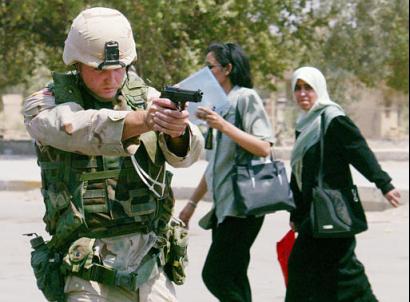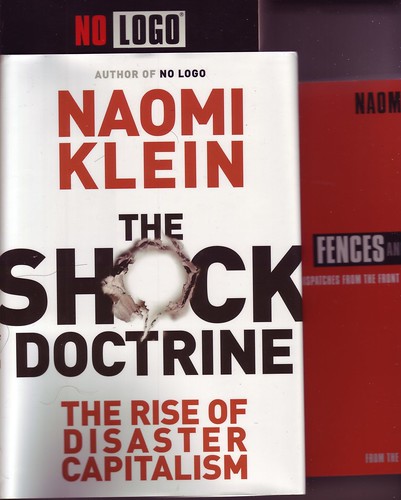 Pakistan has never seen so many people protesting in streets all over the country as been the case during the last two days. They were all united across Pakistan to condemn the brutal murder of Benazir Bhutto. The news was heard with a great shock and there was immediate mass anger that erupted in all parts of Pakistan. December 28 was the first day of a general strike called by many groups, ranging from political parties to various professional groups.
Pakistan has never seen so many people protesting in streets all over the country as been the case during the last two days. They were all united across Pakistan to condemn the brutal murder of Benazir Bhutto. The news was heard with a great shock and there was immediate mass anger that erupted in all parts of Pakistan. December 28 was the first day of a general strike called by many groups, ranging from political parties to various professional groups.Most of election posters, banners, flags and billboards of the Pakistan Muslim League (PMLQ) were the first victim of the mass anger. The PMLQ is a creation of General Musharaf, created after 1999; a major split of Pakistan Muslim League. The rest is headed by Nawaz Sharif, the former prime minister. PMLQ has been sharing power with Musharaf after 2002 and is comprised of the most corrupt feudals, capitalists, former army generals and black marketeers.
The PMLQ had spent billions of these advertising material and all that was gone within a few hours of mass reaction. The work to remove all these anti-people election materials was done with utmost sophistication. None of the Pakistan Peoples Party's election material or that of the Pakistan Muslim League Nawaz was removed.
Then it was the banks mainly in Sind. They were attacked and the buildings were burned in many cities of Sind. Most of ATM machines were destroyed. In some places, people were lucky to bring some money home. Banks had made unprecedented profits during the last few years. There is no free banking anymore, as was the case earlier from sixties.
Hundreds of private buses were burned in all parts of the country. The fares have gone too high during Musharaf's eight years of rule. There were no more public buses. Most of PMLQ government ministers had their own bus companies and were making huge gains out of mass poverty.
There were also incidents of burning of trains in Sind. According to the Daily Jang, 28 railway stations, 13 railway engines and seven trains have been burnt resulting over three billion rupees loss. The rail fares were increased many fold by the Musharaf regime in a bid to reduce the railway losses. It has been partly privatised as well. The whole rail system has collapsed since the night of December 27. Thousands of passengers are on the railway stations waiting for restoration. There is no sign of restoration for some days. Pakistan International Airlines PIA and two private airlines, Air Blue and Shaheen Air, have cancelled all their domestic flights on the name of “rescheduling”. The staff did not turn up.
Thousands of private cars have been damaged all over Pakistan by the angry mobs, mainly youth. They were showing their anger on the car companies' (mainly Toyota, Suzuki and Honda) unprecedented profits during the last few years. Many leasing companies have robbed the growing middle classes by offering cars with abnormal prices. While the massive majority of population have no more subsidised public transport.
The houses and offices of PMLQ politicians, local government mayors and administration are the other victims of the mass reaction. They have either been burnt or damaged.
Over 100 people have so far died in the incidents related to mass protest, either by police or in the crossfire of different groups during the last 40 hours.
Thousands and thousands have raised slogans against the Musharaf regime and US imperialism after the death of Benazir Bhutto. The anger was accumulated during the last eight years and was manifested after this unthinkable incident. This was a response of the masses to the strict implementation of the neoliberal agenda which has resulted in unprecedented price hikes, unemployment and poverty. The anger that was to be shown in boycotting or participating in the elections has come out early after the assassination of Benazir Bhutto.
There is a great anti-Musharaf consciousness all over. It is been shown in different ways in different parts of the country in different degrees. The so-called capitalist economical growth under Musharaf has left millions in absolute poverty. There was no Pakistan shining as was propagated by the dictatorship all the times.
Year of mass awakening
2007 has been a year of mass awakening. It started with the advocates [lawyers] movement after the removal of the chief justice of Supreme Court of Pakistan. The chief justice Iftikhar Choudry said a big “No” to resigning under pressure by the generals. He was removed only to be reinstated on July 20 after a massive movement of 80,000 lawyers. They were joined by political activists from almost all political parties but not by the masses. The masses only welcomed the chief justice from the side roads and did not participate in the movement in real terms.
Musharaf got himself elected as president for the second five-year term in a “democratic manner” by a parliament elected for one five-year term. He was still wearing military uniform when elected as a “civilian” president. His theme was “elect me president for the second term and I will take off uniform after taking oath as civilian president”.
The November 2007 imposition of martial law on the name of emergency was used to remove the rather independent top judges of Pakistan. It put restrictions on the media and over 10,000 people were arrested. Musharaf got himself duly “elected president” and took off uniform after removing the top judges. His hand-picked judges gave him all the necessary backing.
He was helped in this process by Benazir Bhutto, who was -- in Tariq Ali's words -- into a “forced arranged marriage” by US and British imperialism. In this unholy alliance, every one was cheating everyone with utmost honestly.
The general elections were announced for January 8, 2008, and the emergency lifted after the large-scale repression and the removal of an independent judiciary. The regime was happy that everything was going according to “plan”. The Pakistan Peoples Party of Benazir Bhutto, the Muslim League Nawaz and Quid Azam (PMLQ), the three major parties, had agreed to participate in these fraudulent elections. The religious fundamentalist political alliance MMA had split on the question of participation. One major part of MMA had decided to contest the elections.
A campaign for a boycott of the election had started when the religious fundamentalists struck and killed Benazir Bhutto on December 27 evening. The “plan” was shattered into pieces. It was big blow to agreed terms and conditions of various participating parties in the elections. It was not a bump on the road but the total destruction of the road of conciliations and compromises.
The murder of Benazir Bhutto is a double-edge sword. While it is a big blow to the plans of British and US imperialism, it will also be no celebration for the religious fundamentalist forces. The initial anger has gone against the military regime and its crony politicians. It can go against the both. No party will be able to celebrate the shocking killing.
But the Musharaf regime has understood this clearly and now is trying consciously to put the direction of the movement against the religious fundamentalists. Last night, December 28, in a two-hour press conference, a military brigadier representing the government named Baitullah Mehsud, an Al Qaeda associate in the tribal areas of Pakistan, as the one who carried out the attack.
Foolishly he tried his best to prove that Benazir Bhutto was not killed by a bullet but by her head hitting the lever of the sunroof of the bulletproof car as she ducked after the bomb blast. What difference does it make, if it is proved that Bhutto was killed not by the bullet but by another way? Not much.
The brigadier's explanation did not satisfy the angry journalists, who asked him again and again about the connections of the secret intelligence agencies of Pakistan with Abdullah Mahsood. The question, Why had Mahsood released quietly more than 200 Pakistan army men on the day of the imposition of emergency, who were kidnapped by his group a week earlier, went unanswered. The military's Inter Services Intelligence (ISI) has a long relationship with the religious fundamentalists groups dating back to the eighties when the imperialists and the fundamentalists were close friends.
Volatile situation
It is a very volatile, unstable, unpredictable, explosive, dangerous, impulsive, fickle and capricious political situation. It never happened before in many years that mass reaction has erupted to this degree.
The general strike was a total success. All roads were empty. No traffic at all. All shops were closed. All industrial and other institutions were completely shut down.
After an initial inhibition to curb the strike, the regime has now issued strict orders to kill anyone on the spot who is “looting”. It has called the regular army in 16 districts of Sind and paramilitary forces elsewhere in Pakistan.
The regime has so far not postponed the scheduled elections but it will be very difficult to hold elections in this situation. The Muslim League Nawaz and several other political parties have already announced they will boycott the fraudulent elections.
The Labour Party Pakistan is demanding the immediate resignation of the Musharaf dictatorship and the formation of an interim government comprising of civil society organisations, trade unions and peasant organisations. This interim government would hold free and fair general elections under an independent election commission.
The LPP is demanding an immediate restoration of the top judges and investigations of Benazir's and others' murder in this and previous bomb blasts. As part of the All Parties Democratic Movement, LPP is supporting a three-day general strike and linking it to the overthrow of the military dictatorship. It is asking all parties to reject the general elections fraud on January 8 and not to participate in these elections.
[Farooq Tariq is general secretary of the Labour Party Pakistan. Email labourpartypk@yahoo.com, visit http://www.laborpakistan.org or http://www.jeddojuhd.com.]
From Links




















